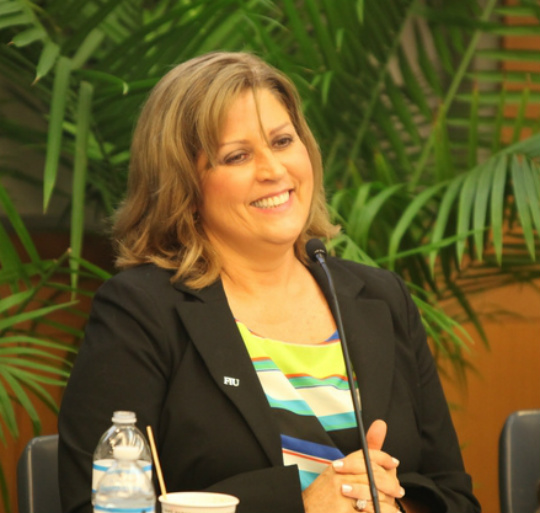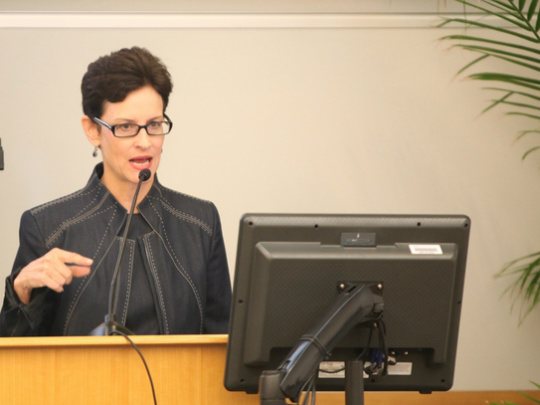Helen Simon had a hunch about Facebook.
In her research for a faculty panel held at Florida International University’s (FIU) College of Business Administration, she saw too many signs of hype around the initial public offering (IPO) of the popular social networking site.
“I had a sixth sense that if Facebook flew, it would fly for one day and adjust down to a rational level,” said Simon, a finance faculty member and certified financial planner. She shared her research at the panel presented by FIU Media Relations on May 8th, 10 days prior to Facebook’s debut as a public company.

Her comments were part of a freewheeling discussion on how Facebook’s new status as a public company would evolve in the legal, cultural and economic worlds. Also present were Bogdan Carbunar, College of Engineering and Computing; Rosanna Fiske, School of Journalism and Mass Communication (SJMC); Raul Reis, dean of SJMC; and Hannibal Travis, College of Law. Jane Wooldridge, moderated the discussion. Over 100 members of the media and other participants heard the discussion, participating both at FIU and online from as far away as Germany.
Bottom line research yields the right results.
Simon enlisted three interns from the State Farm Financial Literacy Lab—Justin Garcia (BBA ’12), Charles Stack (BBA ’11) and Christine Montero (BA ’12)—to analyze Facebook’s EDGAR filings and share their thoughts as young Facebook users. Under Simon’s guidance, Garcia performed a discounted cash flow valuation and came up with a price of $30 a share.
Citing these findings, Simon cautioned attendees not to overpay for the stock if it rose too high on its opening day. She had witnessed a similar pattern in the recent IPO of Groupon, the couponing site, which soared on initial excitement and then plummeted with news of weak financials.

“That’s what most of them do,” she said.
On May 18th, Facebook went public at $38 a share, traded as high as $45, and quickly fell to the low 30s by the next day. During the week after Memorial Day, it traded below $30 a share. The languid performance of the stock and potential legal issues surrounding what was and wasn’t revealed by underwriters have made Facebook one of the most controversial public offerings in years.
Online and in the media, Simon and other panel members continue their conversation about Facebook and its future.
“If there’s some catalyst that makes the earnings per share go up, then the stock price should go up,” Simon said. “You have to go back to the basics.”


